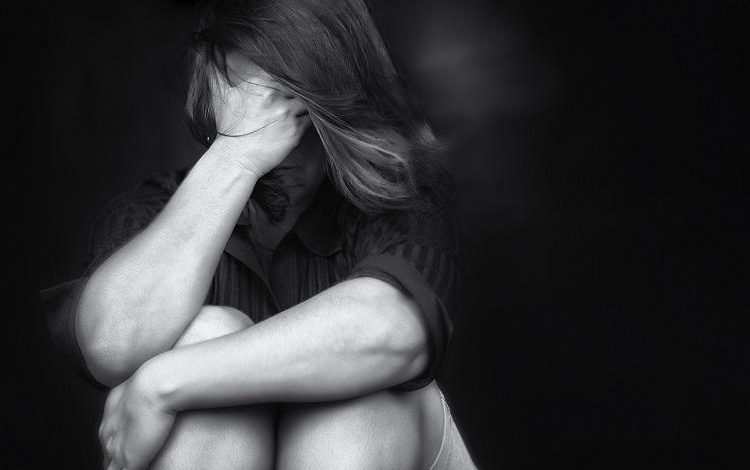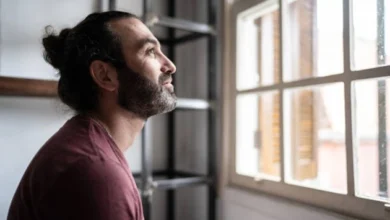7 ways to know you’re not just in a bad mood but depressed

Due to the romanticization of mental disorders in pop culture, every other person occasionally, without thinking twice, refers to their bad mood as depression. But how do you differentiate them? There is a huge difference between ordinary sadness and depression. The first is a condition that everyone experiences from time to time, while the second is a severe illness that can have unfortunate consequences.
We invite you to analyze your condition and determine what is wrong with you – another attack of a bad mood or something more serious. If you recognize at least a few of the symptoms described below, we strongly recommend that you seek help.
You’ve been feeling bad for several weeks
A bad mood usually lasts from several hours to several days. Of course, if a girl abandons you or has lost someone close to you, your condition will be unstable for longer. But if the reasons are not so serious or even unknown to you – let yourself “suffer” for two weeks.
If you still feel depressed and irritability, lethargy, melancholy, and despair are added to your symptoms after this time, the point is not in a bad mood. It would help if you didn’t wait until the last minute – it’s better to make an appointment with a psychotherapist and solve the problem before it can ruin your life.
You get tired quickly, even if you did nothing
With depression, you can feel tired from the very beginning of the day, as soon as you wake up. And it seems that the dream was supposed to give you strength, but not this time. Add to this the almost complete loss of initiative, the unwillingness to leave the house and communicate with the people around, and the realization that your energy is barely enough, even to walk from the bedroom to the kitchen. Everything has to be done with great difficulty, literally overdoing oneself.
You have pains in your body
Depression can manifest itself without its main symptom – loss of mood. Sometimes complaints about causeless pain in certain parts of the body or abnormalities in the activity of internal organs come to the fore. In other words, a person can turn to a neurologist, cardiologist, or therapist with certain complaints about their health and leave with the conclusion that no diseases have been found.
Major complaints include sweating, heart palpitations, trembling limbs, aching or pinching chest pains, bowel problems (constipation/diarrhea), persistent headaches, and muscle pain. So, if your body is trying to tell you that something is wrong, and the therapist is 100% convinced that there is no physical reason for the pain, it’s time to see a therapist.
You do not feel happy from your favorite activities
If you used to love watching football, playing the guitar in your free time, or hanging out with friends at a bar on a Friday night, then with the advent of depression, your hobbies and interests will no longer bring you the pleasure they used to.
Instead of doing what you love or resting the way you used to, you will either lie there, unable to take on anything, or unsuccessfully try to find entertainment for yourself.
You have trouble sleeping
One of the most common symptoms of depression is sleep disturbance. You may have difficulty falling asleep and lie for several hours looking at the ceiling. In addition, depressed sufferers often experience intermittent sleep, unpleasant dreams, early awakenings, excruciating waking up, and lack of energy. Also, after sleep, morning sickness, lethargy, lack of appetite, or, on the contrary, increased appetite, drowsiness, constipation, etc., may appear.
These sleep problems may be the only noticeable symptom of depression at times. If you are facing the above issues for two weeks or more, we strongly recommend seeing a doctor.
You become overly self-critical and feel guilty
If guilt is gradually added to the feeling of overwhelming sadness and irritability, then it is not only a bad mood. The person with depression feels guilty and worthy of punishment. Moreover, this very feeling of guilt can cause you unbearable moral pain.
Let’s say a few months or years ago you lost a loved one and think that you are greatly guilty in front of him. Clinging to this thought, you bury yourself in numerous regrets: “What would have happened if I hadn’t done this then?”, “I so rarely told him/her how much I love him/her” and so on. Every day the feeling of guilt only grows, and at some point, you realize that you cannot cope with your condition.
Then the first thing you should do is make an appointment with a psychotherapist, tell him in detail about everything that is happening in your mind, and begin to undergo therapy. Such regrets do not go away with time.
The same can be said if self-criticism becomes your main problem. If you constantly criticize yourself for what you think/feel/do, perhaps a specialist needs to solve the issue.
Experiencing a sudden change in appetite and weight
In people with depression, the appetite may decrease or disappear altogether, leading to sudden weight loss. Sometimes a different reaction is observed: the appetite, on the contrary, increases, and the weight grows.
Moreover, it is tough for a person to convey his condition to relatives or doctors. He talks about communication problems, worries about material well-being, thinking that a change in appetite is just a stress reaction.




